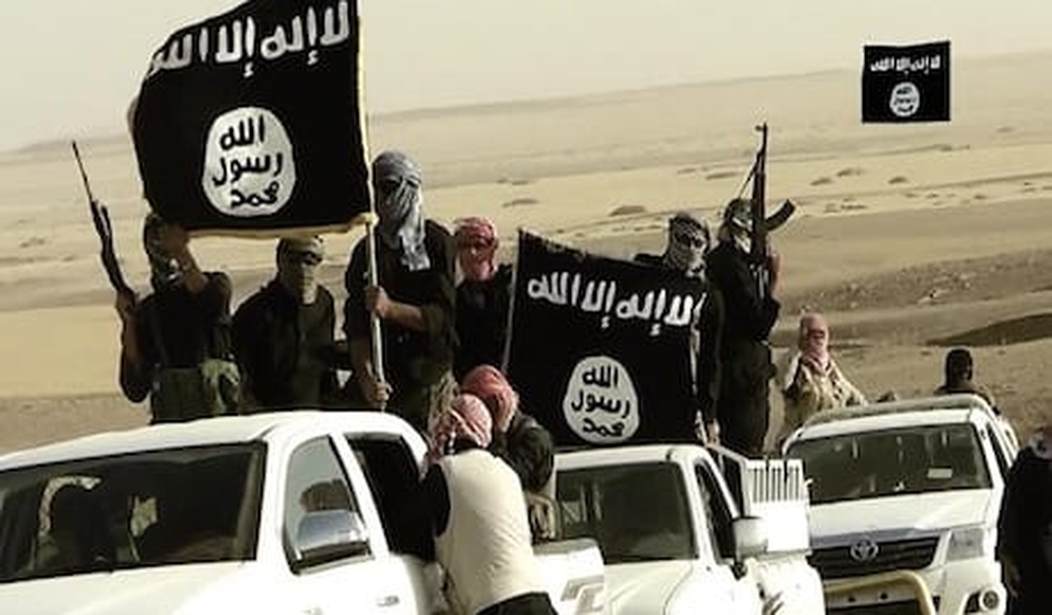WASHINGTON – A panel of legal experts agreed that the 2001 Authorization of the Use of Military Force (AUMF) covers President Obama’s move against the Islamic State of Iraq and al-Sham (ISIS) because it has no expiration date or geographic limits.
Speaking at the Heritage Foundation, Steven Bradbury, a partner at Dechert LLP who served in the office of legal counsel in the Department of Justice during the George W. Bush administration, said the 2001 AUMF gives the president “very broad authority” to use military action against ISIS.
“There is a very strong argument that the president is correct that the 2001 AUMF does continue to give the president statutory authority, approved by Congress, to carry out this continuing war on terror, including against ISIS both in Iraq and Syria,” he said.
Bradbury noted that “ISIS is essentially al-Qaeda” because it is the successor organization to the group led by Abu Musab al-Zarqawi, which carried out attacks on coalition forces, conducted suicide attacks on civilian targets, and beheaded hostages in Iraq.
“The president has authority under the 2001 AUMF to determine that ISIS is a reconstituted version of the al-Qaeda organization,” he said.
Top administration officials have argued that their actions against the Islamic State are covered by the 2001 AUMF that was passed after the Sept. 11 terrorist attacks. The authorization provides for the use of force against al-Qaeda, the Taliban, and associated groups posing an imminent threat to U.S. interests. The administration also sees the 2002 AUMF, which authorized the Iraq War, as an alternative statutory authority basis, the New York Times reported.
In a letter to Congress released after his remarks last month, Obama said he was acting “pursuant to my constitutional and statutory authority as Commander in Chief (including the authority to carry out Public Law 107-40) and as Chief Executive, as well as my constitutional and statutory authority to conduct the foreign relations of the United States.”
Robert Chesney, a law professor at the University of Texas-Austin and a member of the president’s Detention Policy Task Force, says he finds the Obama administration’s legal argument for strikes against ISIS plausible but unpersuasive.
“Al-Qaeda in Iraq was the paradigm example of an al-Qaeda cell that emerged as a standalone associated force engaged in hostilities against the United States; at that point in time both the 2001 and 2002 AUMF covered it,” Chesney said.
The rifts between ISIS and al-Qaeda and the beheadings of two American journalists have “muddied the waters” of a threat to the U.S. or its allies, he said.
Nevertheless, Chesney said a legal case could be made for U.S. military action on the basis that ISIS-controlled territory could be used as a sanctuary for terrorists directly threatening the U.S.
“Over time it doesn’t take a rocket scientist to see that the existence of ISIS as a territorial unit sooner or later could provide the type of cover that Afghanistan once provided to al-Qaeda,” he said. “That is a deep strategic threat, but it is harder to articulate because it is much more speculative.”
The U.S. and partner allies began airstrikes against ISIS in Syria, also known as the Islamic State or ISIL, last month.
The airstrikes also targeted a group, known as Khorasan, that U.S. officials have described as a network of seasoned al-Qaeda fighters with battlefield experience mostly in Pakistan and Afghanistan.
Obama and Department of Defense officials have stressed that the group was an “imminent threat” in the “final stages” of a plan to carry out possible attacks in the U.S. and Europe.
Chesney said the administration’s case in support of attacking Khorasan, given its direct connection with al-Qaeda, is more straightforward because it is covered both by the 2001 AUMF and Article II of the U.S. Constitution, which establishes the president as commander in chief of the U.S. military.
“This isn’t a case of a local group that declared its affiliation with al-Qaeda,” he said. “This is a group centrally controlled and dispatched by the central leadership [of al-Qaeda].”
By claiming statutory authority, the administration sidestepped the War Powers Resolution, which requires presidents to terminate deployment into hostilities after 60 days if they have not been authorized by Congress.
Obama has repeatedly described the military actions as counterterrorism strategy, not a war. In recent interviews, however, Secretary of State John Kerry and Pentagon officials have both said America is at war with ISIS.
“Make no mistake, we know we are at war with [ISIS], in the same way we are at war, and continue to be at war, with al-Qaeda and its affiliates,” Pentagon Press Secretary Rear Adm. John Kirby said.
Congress has only passed a declaration of war on five occasions in U.S. history. The last time Congress declared war was in 1941. It has authorized military action without declaring war on 13 other occasions, including Vietnam, Afghanistan, and both Iraq conflicts.
Congress approved a continuing resolution to fund the government until mid-December before lawmakers skipped town for the midterm elections. Tacked on to it was a provision to pay for training and equipment for rebels fighting against ISIS in Syria.
Several lawmakers have called for Congress to return from recess to begin the debate to narrow the scope of the 2001 AUMF.
Rep. Chris Van Hollen (D-Md.), the ranking member on the House Budget Committee, urged House Speaker John Boehner (R-Ohio) to call the House back to debate a new authorization that supports the current mission but ensures no ground troops.
Boehner said Sunday he would be “happy” to have Congress vote on a new authorization if the president requests it.
“The president typically in a situation like this would call for an authorization vote and go sell that to the American people and send a resolution to [Capitol] Hill,” Boehner told ABC News. “The president has not done that. He believes he has authority under existing resolutions to do what he’s done.”









Join the conversation as a VIP Member